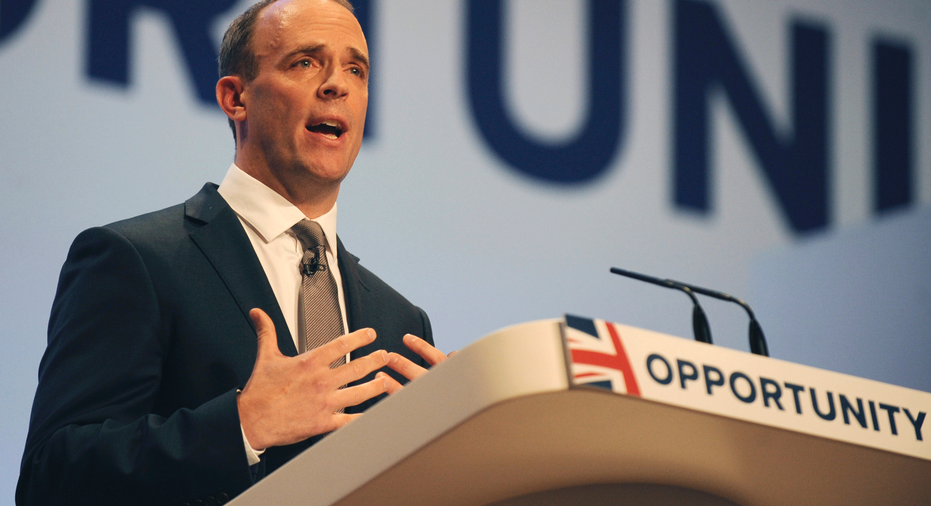UK Brexit chief seeks elusive N Ireland border solution

LONDON – Britain's Brexit chief met politicians from both sides of Northern Ireland's political divide Friday, but there was little sign of a breakthrough on the Irish border impasse that is frustrating divorce talks between the U.K. and the European Union.
Brexit Secretary Dominic Raab met with leaders of the pro-British Democratic Unionist Party and Irish nationalists Sinn Fein, and visited the all-but-invisible border between the U.K.'s Northern Ireland and EU member Ireland.
Britain and the EU agree that after Brexit there must be no customs posts or barriers that could disrupt businesses and residents on either side of the border and undermine Northern Ireland's hard-won peace process. But they don't agree on how to guarantee that.
Britain "will not accept any Brexit proposals that threaten the economic or constitutional integrity of the United Kingdom," Raab said after his meetings in Northern Ireland.
The EU has proposed keeping Northern Ireland inside a customs union with the bloc. But the Democratic Unionist Party, which props up the Conservative British government, won't accept that approach because it means there would be customs and regulatory checks between Northern Ireland and the rest of the U.K.
"Northern Ireland must not be carved into an arrangement which undermines the constitutional or economic integrity of the United Kingdom," DUP leader Arlene Foster said Friday.
Raab said Britain wanted "frictionless trade with the EU" and also "to preserve the internal market within the United Kingdom."
"They're not binary choices. We want to preserve both," he said.
Raab did not outline how the goals would be achieved, saying he would not provide a "running commentary" of the Brexit negotiations.
Sinn Fein leader Mary-Lou McDonald accused Raab of "simply going through the motions" rather than seeking a solution.
"We need to act in a responsible way, in a way that recognizes the real jeopardy and damage that Brexit can and will do to our economy, potentially to our peace agreements," she said.
McDonald said Britain would be acting "recklessly" if it backtracked on its commitment to avoid a hard border.
Britain is due to leave the EU on March 29, but the border stalemate has prevented London and Brussels from reaching an agreement on their divorce terms and a smooth transition to a new relationship.
The stalemate has heightened fears that the U.K. might withdraw without a deal in place, leading to chaos at ports and economic turmoil.



















